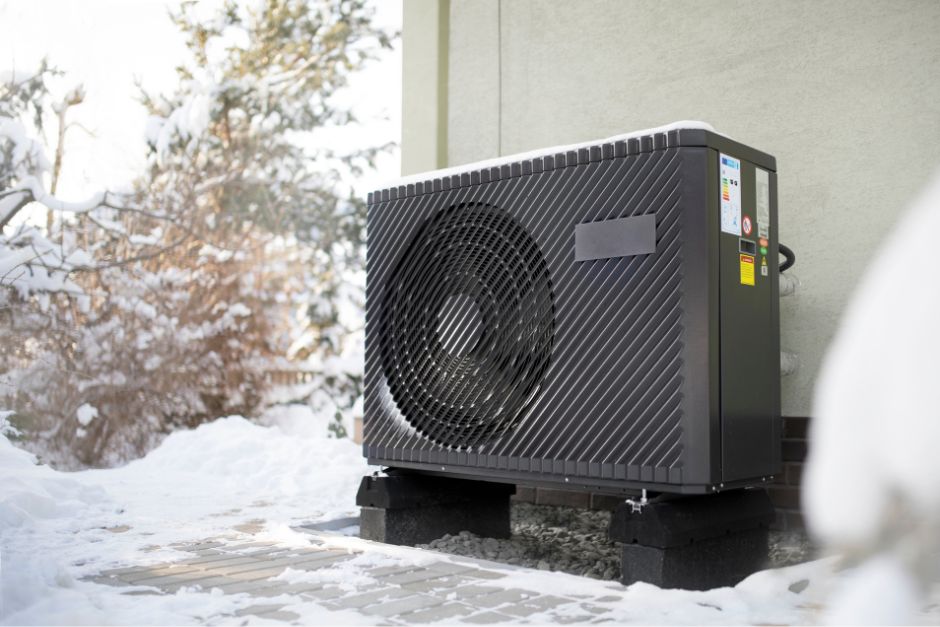
I often get asked, “which is better, heating the whole house, or just heating one or two rooms”? Recently (October 2023) my central heating system broke down and so I had no option but to only heat one or two rooms, using portable electric radiators, for a period of 14 days. So once my central heating was repaired, I downloaded the data from my smart meters for the period when the central heating was broken, to find out the answer.
It was more expensive to heat two rooms using electric radiators, than to heat the whole house using the central heating system. It cost me an additional £20.52 over a 14-day period.
Conclusion – it is better to have a steady background heat in the whole house than to heat individual rooms intermittently. I am in the lucky position that I can afford an extra £20.52 and I won’t notice it as I pay by fixed monthly direct debit. But for somebody on a low income during a cost living / cost of corporate greed crisis, perhaps using a prepayment meter, then an additional £20.52 (including standing charges and VAT) over 14-days is potentially disastrous and is a major threat to their financial security and their health.
Methodology
I used smart meter data from the period in October 2023 during which I used portable electric radiators to heat two rooms. Normally during this period I would have used the central heating to heat the whole house using the “low and slow” method, as I did in October 2022 – i.e. a boiler flow temperature to the radiators of 45 degrees; a room thermostat temperature of 19 degrees during the daytime when occupied, of 12-16 when unoccupied, and of 16 at night; and using the thermostatic radiator valves to control individual rooms – set between 1 (unoccupied or intermittently occupied rooms) and 4 (living room when occupied; bedroom when occupied; spare bedroom when used as a study; bathroom when occupied; kitchen while cooking).
Electricity baseline
I compared my gas and electricity use from the 14-day period in October 2023, with a similar period in October 2022 when the central heating was working normally. I also compared my baseline of electricity use in September/October 2023 before the central heating broke down, with the same period in September/October 2023. This is when it gets slightly complicated – in October 2022 there were two of us in the house, then in the spring of 2023 my youngest daughter Hannah bought a house in Bearwood with her fiance Craig, and so by October 2023 there was only me, which means I am under-occupying. Hannah used to work from home three days a week so my calculations take into account the difference in electricity baseline between October 2022 and October 2023.
Weather
In October 2022 the average temperature in Birmingham was 12 degrees. In October 2023 the average temperature in Birmingham was 12 degrees. Therefore the external temperature over the two periods will have had little impact on the need for heat in my house. Wind speeds, humidity, and air pressure were similar in both months.
What accounts for the difference?
Here are the main factors:
- Gas is cheaper than electricity
- When using the central heating, I use the “low and slow” method – this means that internal surfaces and the air in my house stay warm for longer. When using portable electric heaters, I only had them on for short bursts. This means that internal surfaces and the air in my house didn’t retain heat.
- I don’t have room for a dishwasher and so I do the washing up by hand using a washing-up bowl. I have solar thermal which provides around 50% of my hot water over a 12-month period. In October when it’s cold enough to need the heating on, the contribution of solar thermal to my hot water is negligible, and all of my hot water is provided by gas. When the central heating was broken I had to boil a kettle to do the washing up. This partly contributes to the increase in electricity consumption when the central heating was down in October 2023. I take mostly showers rather than baths (as did Hannah when she was here) and so there will have been little or no impact on energy use from showers/baths during October 2023. There will have been a small difference due to handwashing but I consider this to be negligible.
Environmental impact
I am on a 100% green electricity tariff (a genuine one, not a fake one). Therefore, during the 14 days I used electricity for heating, 34 kg of greenhouse gas emissions were avoided. Had I not been on a 100% green electricity tariff, 14 kg of greenhouse gas emissions were avoided. This is a reduction of about 17%. This is the good news!
Impact on me
I was on the verge of being cold at various points during the time I used electricity to heat the house. It was inconvenient to have to turn electric radiators on and off and up and down. When using the central heating, I will adjust the various heating controls several times a day (hint: everyone should do this) but adjusting electric radiators was far more inconvenient. It was also inconvenient having to boil kettles for the washing up and I avoided using things in the kitchen to reduce the washing up. It was nice to have a warm shower, I don’t have baths very often but I did miss not being able to have a bath occasionally.
Condensation and damp
I don’t have a problem with condensation and damp and I did not have any problems while only two rooms were heated. However if rooms were unheated for a lengthy period of time then it would increase the risk of condensation and damp. Read more …
Why do people believe it’s cheaper to heat one room?
If you Google “Which is better – heating the whole house or just heating one or two rooms?” then you will get various answers. Many websites claim it’s cheaper to heat one or two rooms. This includes people who should know better. Ultimately the reason why so many people are misguided on this comes down to the difference between common sense and good sense. Common sense tells us that it’s obvious that heating one or two rooms is cheaper. Good sense compels us to look at the science involved. The science is:
- How buildings react to heating and cooling, and the way in which solids (building components) and gases (the internal air) heat up, retain heat, cool down, lose heat, over time.
- The efficiency of heating systems, and in particular the difference in running costs between gas boiler that is run efficiently (“low and slow”) and a gas boiler that is run inefficiently (“fast and hot”).
- Before 2005 when gas boilers were non-condensing then it would have been cheaper to use electric radiators to heat one or two rooms than to use gas central heating. This is no longer true for a condensing boiler that is run properly with flow temperatures of 45-55 and a steady background heat.
- It is important to note that running central heating with most of the thermostatic radiator valves turned down to 0 is not necessarily cheaper, as the boiler will work less efficiently. It’s better to keep thermostatic radiator valves on 1 or 2 in an unused room.
- My house is a small end terrace. In very large houses the economics would be different. But for most people it’s cheaper to heat the whole house
- The difference in pricing between gas and electricity.
The price of gas is going to rise faster over the coming years and this means that the gap will close. There may come a point when it is indeed cheaper to heat one or two rooms. Over the coming years, heat pumps will be the lowest carbon and lowest running cost method to heat a home, and the cost of a heat pump is coming down. In this blog I talk about the help I gave to a householder who had an under-performing heat pump.
What if the house were bigger?
This is a good questions. So I have modelled what the consumption would look like if my house were those of some of my neighbours – similar original built form but with the addition of a single storey rear extension built in the 1990s. Modelling using Heat Engineer software shows that if I were using my method of heating the house for a house of this size, then the heat consumption would rise by 13%. Therefore, if I had a house extension of this type and heated it by only heating two rooms using electric radiators, then it would still be more expensive to only heat two rooms. It would have cost me £18.79 more to heat only two rooms, which is £1.72 less than the £20.52 it actually cost me to heat only two rooms in October 2023, but nevertheless still more expensive. Conclusion – there is a decrease in the gap between the ‘heat only two rooms’ method and the ‘heat the whole house’ method, but it’s still more expensive to only heat two rooms using electric heaters, even if you are under-occupying like me. If you had a much larger house then there may come a point at which the difference in price narrows to such an extent that it is cheaper to only heat two rooms with electric radiators. I haven’t modelled how big the house needs to be, but I suspect it’s at least a 200 square metre 5 bedroom house.































